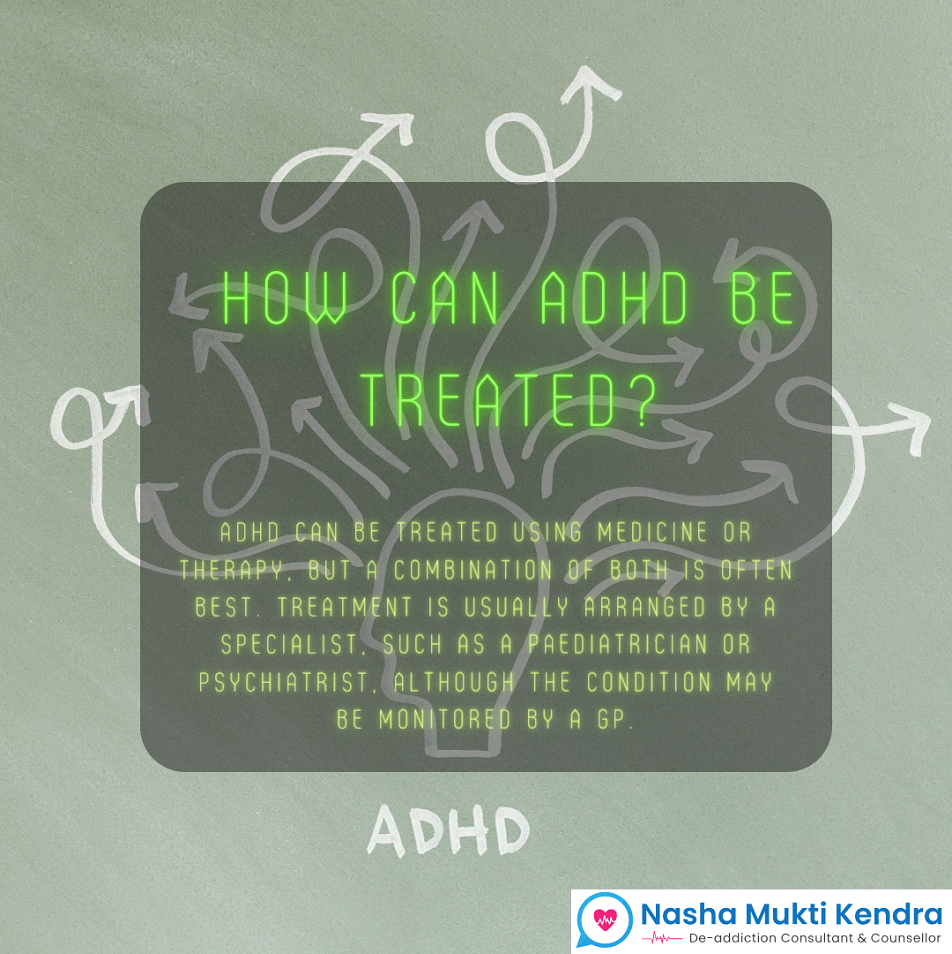Attention-Deficit/Hyperactivity Disorder (ADHD) is a neurodevelopmental disorder that affects both children and adults, causing difficulties in maintaining attention, controlling impulses, and regulating hyperactivity. While its prevalence has been increasing over the years, understanding the signs and symptoms is crucial for early detection and effective management. This blog delves into the various types of ADHD, its symptoms in different age groups, and the related conditions that often accompany it.
Types of ADHD
ADHD is commonly categorized into three main types:
- Predominantly Inattentive Presentation (ADHD-I): Individuals with this type struggle primarily with attention-related issues. They find it challenging to focus on tasks, are often forgetful, and may have difficulty organizing their activities.
- Predominantly Hyperactive-Impulsive Presentation (ADHD-HI): This type is characterized by hyperactivity and impulsive behaviors. Individuals with ADHD-HI may struggle with sitting still, interrupt conversations, and act impulsively without considering the consequences.
- Combined Presentation (ADHD-C): This is the most common type of ADHD, where individuals exhibit both inattentive and hyperactive-impulsive symptoms.
Symptoms in Children and Teenagers
Inattentive Symptoms:
Children and teenagers with ADHD often display a range of inattentive symptoms, including:
- Difficulty paying attention: They may have trouble focusing on tasks, frequently making careless mistakes.
- Easily distracted: Even minor stimuli can divert their attention, making it challenging to complete assignments or follow instructions.
- Poor organization skills: Keeping track of belongings, managing time, and maintaining a neat workspace may pose significant difficulties.
- Forgetfulness: Important dates, appointments, and responsibilities might slip their minds.
Hyperactive-Impulsive Symptoms:
Hyperactivity and impulsivity manifest in the following ways:
- Restlessness: Children and teenagers with ADHD may appear fidgety or constantly on the move.
- Impulsivity: They may act without thinking, interrupt conversations, or have difficulty waiting their turn.
- Difficulty engaging in quiet activities: Sitting quietly during activities that demand focus can be a struggle.
- Talkativeness: Excessive talking and difficulty staying quiet in appropriate situations are common.
Related Conditions in Children and Teenagers with ADHD
ADHD often coexists with other conditions, compounding the challenges faced by children and teenagers. Some related conditions include:
- Oppositional Defiant Disorder (ODD): Characterized by defiant and hostile behavior towards authority figures.
- Conduct Disorder (CD): Involves more severe behavioral issues, such as aggression, destruction of property, and violation of rules.
- Learning Disabilities: Difficulties in reading, writing, or math may accompany ADHD, affecting academic performance.
- Anxiety and Depression: Emotional struggles are common in children with ADHD, leading to anxiety and depressive disorders.
- Autism Spectrum Disorder (ASD): Some ADHD symptoms overlap with ASD traits, making accurate diagnosis and treatment complex.
Symptoms in Adults
ADHD doesn’t necessarily disappear with age; it often persists into adulthood, albeit with different manifestations. Adult ADHD symptoms can be grouped into two categories: inattentiveness and hyperactivity-impulsivity.
Inattentive Symptoms:
- Chronic Disorganization: Adults with ADHD may struggle to manage their responsibilities, leading to cluttered spaces and missed deadlines.
- Poor Time Management: They might underestimate the time required for tasks, leading to difficulties in punctuality and project completion.
- Forgetfulness: Similar to children, adults might forget appointments, tasks, and obligations.
Hyperactive-Impulsive Symptoms:
- Restlessness: An inner sense of restlessness and difficulty remaining seated in situations where it’s expected.
- Impulsivity: Adults might struggle with impulse control, leading to impulsive spending, interrupting conversations, or taking unnecessary risks.
- Talkativeness: Excessive talking can persist into adulthood, often causing interpersonal challenges.
Related Conditions in Adults with ADHD
Adults with ADHD frequently experience other conditions alongside their ADHD symptoms, which can complicate diagnosis and treatment:
- Anxiety and Depression: Emotional dysregulation commonly leads to anxiety and depressive disorders in adults with ADHD.
- Substance Abuse: Individuals with ADHD may turn to substances as a way to cope with their symptoms, leading to potential addiction issues.
- Bipolar Disorder: ADHD and bipolar disorder can share overlapping symptoms, making accurate diagnosis essential for effective treatment.
- Sleep Disorders: Difficulties in maintaining a regular sleep schedule and experiencing restful sleep are often reported by adults with ADHD.
- Relationship Issues: Impulsivity and inattentiveness can strain relationships, leading to marital and family conflicts.
ADHD is a multifaceted neurodevelopmental disorder that affects individuals of all ages. Its symptoms, which encompass inattentiveness, hyperactivity, and impulsivity, can vary widely and present differently in children, teenagers, and adults. Furthermore, the presence of related conditions such as ODD, CD, learning disabilities, anxiety, depression, and others underscores the complexity of ADHD diagnosis and management. Early identification and comprehensive treatment are crucial to mitigate the impact of ADHD on an individual’s academic, social, and occupational functioning.
Why Choose Nasha Mukti Kendra for ADHD Support?
When seeking help for Attention-Deficit/Hyperactivity Disorder (ADHD), it’s essential to find a supportive environment that offers specialized care tailored to your needs. Nasha Mukti Kendra stands out as a comprehensive solution for individuals dealing with ADHD, providing a range of services that set us apart.
Expert Clinical Psychologists
At Nasha Mukti Kendra, we understand the unique challenges that ADHD presents. Our team is comprised of expert clinical psychologists who are well-versed in diagnosing and treating ADHD across all age groups. With their extensive knowledge and experience, they ensure that you and your loved ones receive personalized attention and guidance throughout the journey of managing ADHD.
Love & Care Therapy
One of our distinctive offerings is the implementation of the American-based therapy known as Love & Care Therapy. This therapy approach goes beyond traditional methods by fostering a nurturing and supportive environment that promotes emotional well-being. Love & Care Therapy not only addresses the core symptoms of ADHD but also focuses on building self-esteem, emotional regulation, and healthy coping mechanisms. This holistic approach recognizes the importance of emotional health in managing ADHD and empowers individuals to thrive.
Choosing Nasha Mukti Kendra in Dehradun means choosing a comprehensive and compassionate approach to ADHD support. Our team’s commitment to excellence, combined with the innovative Love & Care Therapy, ensures that you and your loved ones receive the best possible care in your journey towards managing ADHD effectively.
